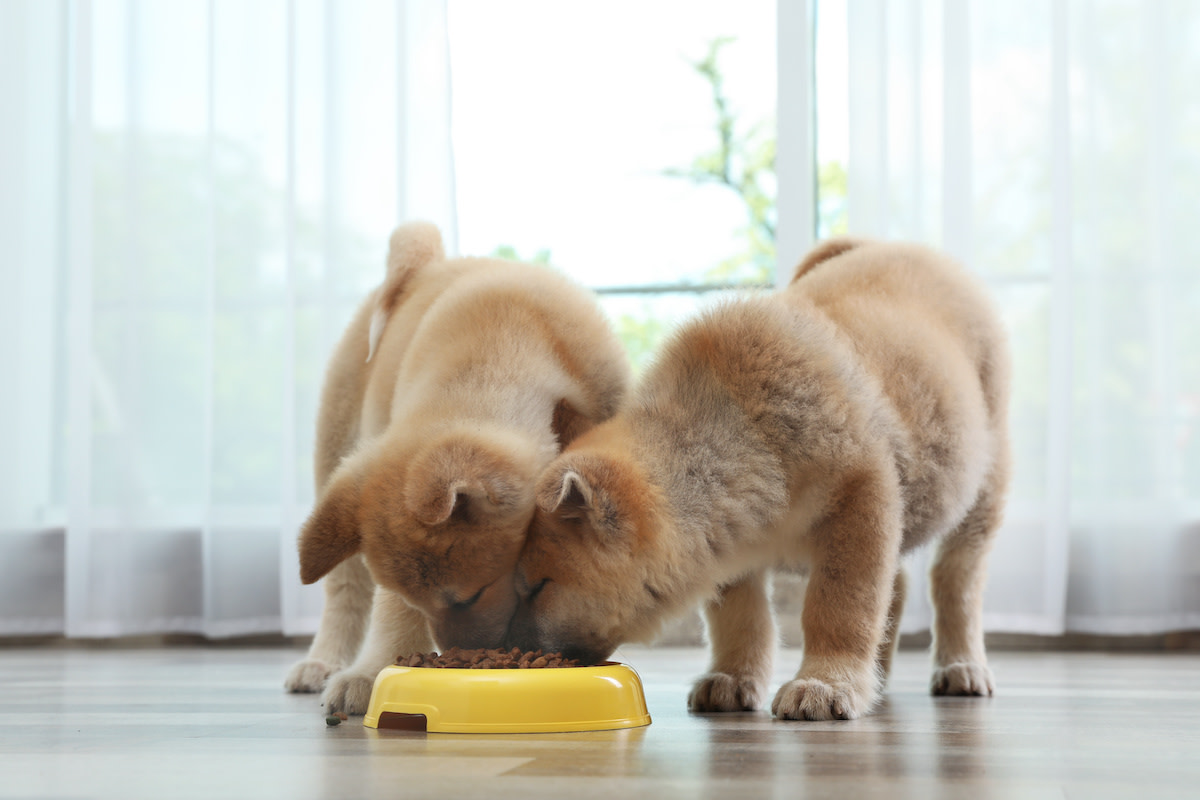Can Dogs Eat Turkey Bacon?
Written by MasterClass
Last updated: Jun 17, 2022 • 3 min read
If your dog looks longingly at the turkey bacon you’ve just fried, you might feel tempted to give them a taste of this human food. While dogs can safely eat turkey bacon, you should follow a few common-sense safety rules before offering any.
Learn From the Best
Can Dogs Eat Turkey Bacon?
Yes, dogs can safely consume turkey bacon, provided you serve it in moderation. Your dog should get the majority of their nutritional needs from their prescribed dog food, so treats and human food should only make up, at most, ten percent of a dog’s diet. However, you can offer your pooch turkey bacon treats on special occasions.
Is Turkey Bacon Healthy for Dogs?
Turkey bacon is a healthier option for dogs than normal pork bacon. While pork bacon has a high fat content and lots of salt—both bad for a dog’s health—bacon made from turkey meat is slightly healthier. The typical slice of turkey bacon has less fat, more overall protein, and less salt than a similar slice of regular bacon made from pork. Turkey bacon also contains fatty acids that may enhance your pup’s coat.
Dog owners might not put microwaved bacon on their own plate, but dogs would gladly gobble some up. If you don’t want to fry a batch of bacon, zap a single strip in the microwave and feed it to your dog. If you fry the bacon, rest the protein on a couple of paper towels, which will absorb the grease. Bacon grease is too fatty for pets to consume and can cause health complications.
When Is Turkey Bacon Bad for Dogs?
When it comes to dogs and human food, portion size marks the difference between a harmless snack and an emergency trip to the vet. Turkey bacon offers no exception to this rule. While turkey bacon is generally a healthier alternative to other processed meats such as pork bacon, it does pose issues for dogs when they consume too much.
- Fat: Unlike pork bacon made from fatty cuts, turkey bacon comes from leaner cuts of raw meat. However, it still contains fat, which means that large amounts will cause health problems for your dog. Symptoms of excessive fat intake include abdominal pain, stomach upset, obesity, and even pancreatitis.
- Salt: Dogs cannot consume as much sodium as humans. Most turkey bacon has high salt content; if your dog consumes too much turkey bacon, it can lead to indigestion, bloating, and dehydration. Look for low-sodium dog turkey bacon and turkey sausage at organic pet food stores.
- Additives: Many varieties of store-bought turkey bacon contain flavorings and additives that your pup should never eat. These additives include smoke flavor, added sugar, added salt, artificial flavors, and preservatives like nitrites and nitrates. Some artificial sweeteners like xylitol can cause life-threatening side effects in dogs. While producers may not typically add sweeteners to turkey bacon, pet owners must be vigilant about reading the nutritional facts on the packaging to keep these items out of their dog’s diet.
3 Ways to Serve Your Dog Turkey Bacon
Offer your dog a small piece of turkey bacon as an occasional snack or reward for good behavior. Your dog may salivate at raw bacon, but cooked bacon is safer for them to consume. Here are some ways to add turkey bacon to your dog’s diet.
- 1. As a salad topping: Despite their reputation as carnivores, some dogs love the taste of salad. If you add turkey bacon to your salad, share a few bits with your furry friend.
- 2. Pre-cooked, straight out of the package: Your dog would probably enjoy munching on raw turkey bacon, but uncooked meats can harbor foodborne pathogens like salmonella. Fortunately, most turkey bacon comes pre-cooked—offer a small piece to your dog straight out of the package.
- 3. Sprinkled on dog food: Break crispy strips of turkey bacon into smaller pieces, like crumbles, and add them to your pooch’s dog food. Remember that this should be a special treat, not a daily addition to your dog’s regular diet.
Before Sharing Human Food With Your Pooch
Certain human foods and beverages can cause adverse reactions in canines, so always consult your veterinarian to determine whether it is safe to add these items to your pet’s diet. This article is for educational and informational purposes and is not a substitute for medical or dietary advice.
Want to Learn More About Training the Goodest Boy or Girl?
Your dream of having a dog who understands words like “sit,” “stay,” “down,” and—crucially— “no” is just a MasterClass Annual Membership away. The only things you’ll need to train up a well-behaved pup are your laptop, a big bag of treats, and our exclusive instructional videos from superstar animal trainer Brandon McMillan.
